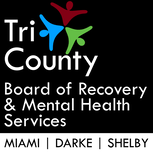Problem gambling is defined as a compulsion to gamble beyond one’s means to lose, to divert money or other resources away from necessities into gambling, and being deceptive about frequency and amounts gambled. Problem gambling is increasingly recognized as a behavioral health issue, and as such, it can be diagnosed, treated and recovered from.
The Tri-County Board of Recovery and Mental Health Services is making information and services available for the prevention, identification and treatment of problem gambling. A billboard campaign in Darke, Miami and Shelby counties began in November and will run through March. The signature catchphrase of the campaign is “When gambling becomes more than a game, no one wins.” The billboards refer to a local website, www.health-and-help-center.org, for information and referral. The boards also show the Ohio Problem Gambling Helpline, 800-522-4700.
Billionaire investor Warren Buffet made headlines last week when he announced that he would guarantee Quicken Loans’ “billion dollar bracket challenge,” offering $1 billion for a “perfect bracket” – correct picks in every game in every round of the upcoming NCAA men’s basketball tournament. The odds against winning are astronomical, far worse than a multi-state lottery, but the high profile, high payout contest raises the stakes on what has become a socially-accepted betting opportunity, with only a wink and a nod to the illegality of sports wagering in every state except Nevada.
On Sunday, The Denver Broncos and Seattle Seahawks face off in Super Bowl XLVIII. Before that game is decided, legal sports bookmakers in Las Vegas will cover upwards of $100 million in wagers on every aspect of the game, from the winner to the point spread to the “over-under” on how many times Peyton Manning says “Omaha.” And Vegas is just the tip of the iceberg.
“The period between the Super Bowl and March Madness can be thought of as gambling’s flu season,” said Brad Reed, Tri-County Board Director of Community Resource Development. “While sports wagering is around all year long, these two events really raise the profile, getting people involved in betting who are not otherwise prone to it, and in some cases with severe consequences.”
Sports wagering among family, friends and co-workers can be all in fun, until someone is drawn into a gambling compulsion. A sense of needing to gamble to win back lost money, or a sense of being on the verge of a big win, starts the cycle. Gamblers tend to remember the few wins and forget the many losses. Some researchers have found that the brain responds to a close loss the same as to a win, and the reward centers are activated even when the gambler loses.
For many reasons, problem gambling is harder to identify (or admit to) than drug or alcohol abuse, because in those cases harmful changes to the body can be measured. Family, friends and co-workers can still spot signs of problem gambling if they know what to look for:
- Preoccupation with gambling and unable to stop
- Exaggerating wins, minimizing losses
- Restlessness or irritability when not gambling
- Gambling to win back losses
- Borrowing money for gambling
- Lying to hide gambling or debts
- Frequent unexplained absences, lost time at work
- Jeopardizing relationships or jobs for gambling
If friends, family or co-workers suspect someone has a gambling problem and want to reach out, the Tri-County Board has identified some tips for facilitating a successful conversation:
- Talk in a comfortable, private place where you won’t be disturbed or distracted
- Keep it simple and straightforward, focusing on your concern for the person and behavior
- Be specific about how the behavior is affecting others
- Be clear about expectations
- Allow the person to respond, and listen non-judgmentally
- Encourage the person to seek professional help. Offer the Ohio Problem Gambling Helpline, 800-522-4700; or the Tri-County 24-Hour Crisis Hotline, 800-351-7347. Darke County Recovery Services, Miami County Recovery Counsel and Shelby County Counseling Center offer certified gambling recovery counselors locally.
Getting help early can prevent a gambling problem from spiraling out of control, destroying relationships, financial resources and credit ratings. When gambling becomes more than a game, no one wins. For more information, view the website at www.health-and-help-center.org or contact the Tri-County Board at its offices in Troy.
 RSS Feed
RSS Feed
